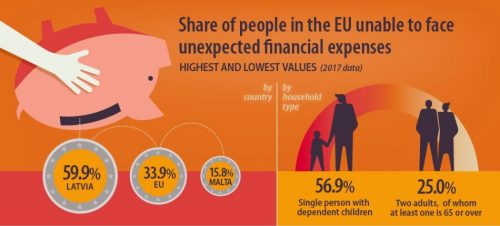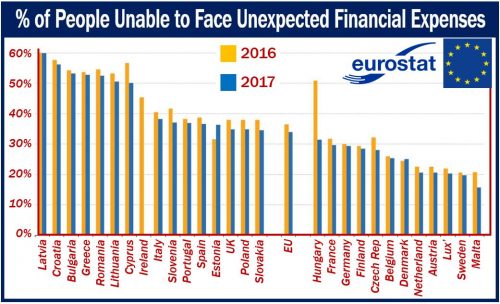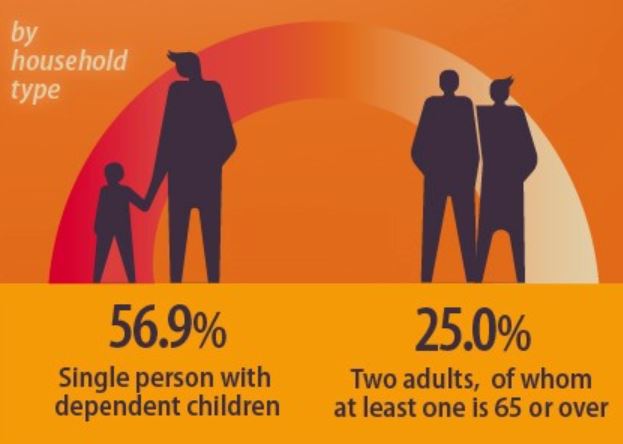Thirty-nine percent of all the people in the European Union could not face unexpected financial expenses in 2017. Latvia, at 59.9%, had the highest percentage of citizens who were unable to face unexpected financial expenses. Croatia, at 56.2% came second, and Bulgaria (53.2%) third.
These were the figures that Eurostat published on November 24th, 2018. Eurostat, which is based in Luxembourg, provides statistical information to the institutions of the European Union.
Fewer than one-in-four people could not face unexpected financial expenses in the Netherlands (20.7%) in 2017. In Austria, Luxembourg, Sweden, and Malta, the figures were 20.6%, 20.4%, 19.7%, and 15.8% respectively.
Across the EU, 56.9% of single people with dependent children were unable to face unexpected financial expenses in 2017. In households with two adults, of whom at least one was 65+ years old, the proportion was 25%.

Proportion unable to face unexpected financial expenses fell
Across the European Union, the percentage of people who could not face unexpected financial expenses was lower in 2017 compared to 2016. Over a twelve-month period, the average decreased by -2.5 percentage points.
All countries except for Denmark and Estonia reported a decrease in the proportion of people who could not cope. In Denmark and Estonia, there were increases of 0.6 and 4.7 percentage points respectively.
Hungary reported the largest decrease, -19.3 percentage points. Cyprus, Malta, and Slovenia reported decreases of -6.5, -5, and -4.6 percentage points respectively.

Poverty in the United Kingdom
Philip Alston, the UN Special Rapporteur on extreme poverty and human rights, released a report on Friday on poverty in the UK. The report focuses specifically how BREXIT will drive more British citizens into poverty unless the Government takes action.
BREXIT stands for BRitain EXITing the European Union.
Mr. Alston reported that after many years of progress, the risk of poverty in Britain has been rising. Homelessness was sixty percent higher in 2018 than in 2010. He also predicted that child poverty will have risen by 7% between 2015 and 2022.
Mr. Alston said:
“In the fifth richest country in the world, this is not just a disgrace, but a social calamity and an economic disaster, all rolled into one.”

